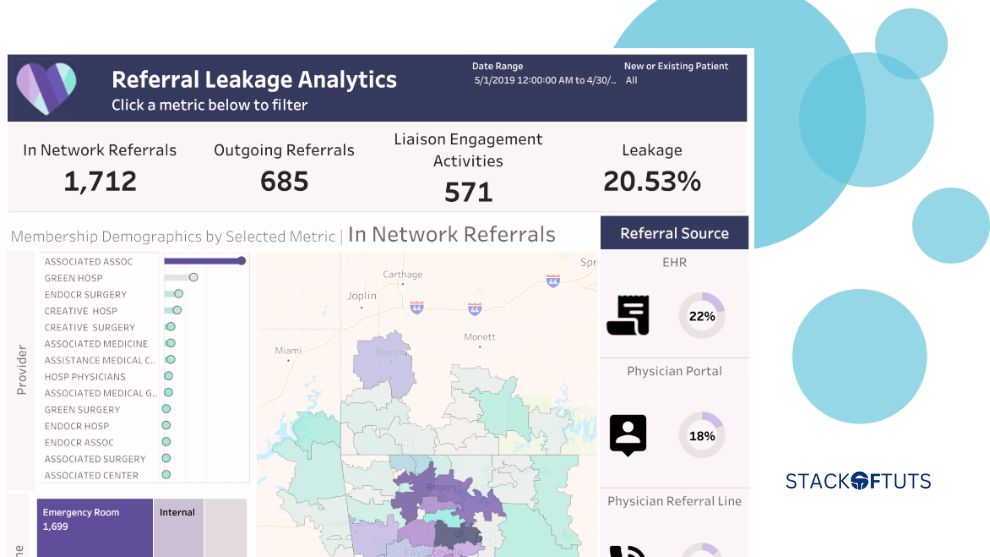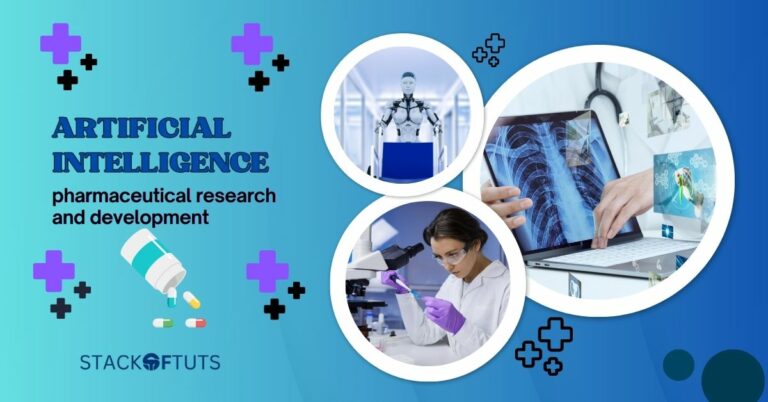
Healthcare analytics software has become indispensable in deciphering the vast amount of data generated by the medical sector. Here is the leading Healthcare Analytics Software in 2024 that has set a benchmark for insights, efficiency, and patient care improvement.
Understanding healthcare analytics software
Healthcare analytics software is an advanced tool designed for the aggregation, storage, analysis, and representation of medical data. This software integrates data from multiple sources, such as electronic health records (EHRs), billing systems, claims data, and patient feedback. Its primary goal is to enhance healthcare delivery by transforming raw data into meaningful insights.
For a complete guide also read about Top Healthcare Artificial Intelligence Software dive into this link for exclusive insights and captivating discoveries!
Key Functions of Healthcare Analytics Software
The software plays a crucial role in the healthcare sector by enabling various operations, including:
- Trend Analysis in Patient Demographics: It helps in recognizing patterns and tendencies within patient groups.
- Enhancement of Care Quality: By analyzing patient data, it aids in elevating the standard of medical care.
- Cost Reduction: It identifies opportunities for cost savings, such as minimizing unnecessary medical procedures.
- Operational Efficiency: The software streamlines healthcare processes, leading to increased productivity.
- Fraud Detection: It assists in identifying and preventing fraudulent activities in healthcare services.
Advantages of Implementing Healthcare Analytics Software
The utilization of this software brings forth numerous benefits:
- Elevated Patient Care: It aids healthcare providers in identifying at-risk patients, devising tailored treatment plans, and monitoring patient outcomes.
- Cost Management: The software helps in pinpointing areas for financial savings.
- Operational Streamlining: It enhances workflow efficiency in healthcare settings.
- Fraud Prevention: It plays a key role in detecting and thwarting fraudulent activities in the healthcare sector.
Related Post: Using AI for electronic health record data analysis
12 Best Healthcare Analytics Software
1. IBM Watson Health

IBM Watson Health stands out with its robust analytics capabilities, utilizing AI to process health data and provide actionable insights, enhancing clinical decision-making, and patient care.
2. Epic Systems Analytics

Epic Systems offers powerful analytics solutions integrated into its comprehensive healthcare software, providing real-time data analysis to inform patient treatment plans and operational decisions.
3. SAS Health Analytics

SAS Health Analytics solutions harness predictive and descriptive modeling, forecasting, and optimization to turn data into insights, thus aiding in outcome improvement and risk management.
4. Cerner HealtheAnalytics

Cerner’s analytics platform provides health organizations with a cohesive view of the patient care journey, supporting data-driven decisions that can enhance health outcomes and operational efficiencies.
5. OptumInsight

OptumInsight offers a range of analytics solutions, from population health management to operational analytics, enabling healthcare providers to optimize performance and patient care.
6. Allscripts dbMotion

With this analytics solution from Allscripts, you can easily combine and analyze health data from different sources, creating a single record for each patient that can be used to provide better care.
7. Health Catalyst Data Operating System (DOS)

Health Catalyst DOS combines the features of a data warehouse, clinical data repository, and health analytics platform, providing a comprehensive solution for managing and analyzing healthcare data.
8. Tableau Healthcare Analytics

Tableau’s interactive data visualization tools allow healthcare professionals to analyze and share complex data, supporting informed decision-making across all levels of a healthcare organization.
9. Qlik Healthcare

Qlik Healthcare specializes in data integration and analytics, helping providers gain clinical insights, improve patient outcomes, and streamline operations through an accessible analytics platform.
10. InterSystems HealthShare

Strategic interoperability and analytics from InterSystems HealthShare give you actionable insights that lead to better outcomes through a unified care record and analytics that cover the whole care continuum.
11. McKesson Analytics Explorer

McKesson provides an analytics platform that simplifies complex healthcare data, offering clarity for better clinical, operational, and financial decision-making.
12. MedeAnalytics Healthcare Analytics

MedeAnalytics empowers healthcare organizations with analytics solutions that provide insights into financial performance, operational efficiency, and patient care quality.
Who benefits from healthcare analytics software?
This software finds its application across various segments of the healthcare industry:
- Healthcare Providers: Doctors, nurses, and hospitals leverage this software to improve patient care.
- Insurance Payers: Insurance firms and Medicare use it for cost management and claim processing efficiency.
- Employers: Businesses employ this software to manage employee healthcare expenses.
- Government Entities: Government agencies utilize the software to enhance public health systems and assess the effectiveness of healthcare programs.
FAQs
Healthcare analytics software is designed to enhance healthcare delivery by transforming vast amounts of medical data into meaningful insights, aiding in patient care improvement, operational efficiency, and cost management.
The software benefits healthcare providers, insurance payers, employers, and government entities by improving patient care, streamlining operations, and aiding in cost management and fraud prevention.
It improves patient care by analyzing patient data to identify at-risk individuals, tailor treatment plans, and monitor outcomes, thereby elevating the standard of medical care.
Key functions include trend analysis in patient demographics, enhancing care quality, reducing costs, increasing operational efficiency, and detecting and preventing fraud in healthcare services.
Conclusion
As stated, healthcare analytics software is crucial in modern healthcare. These advanced tools help aggregate, analyze, and understand medical data. These software solutions improve healthcare delivery by combining EHR, billing, and patient feedback data. Trend analysis, care quality improvement, cost reduction, operational efficiency improvement, and fraud detection improve patient care and healthcare operations. These products lead healthcare technology by improving efficiency, patient care, and decision-making for healthcare providers, insurance payers, employers, and governments.
Thanks!





